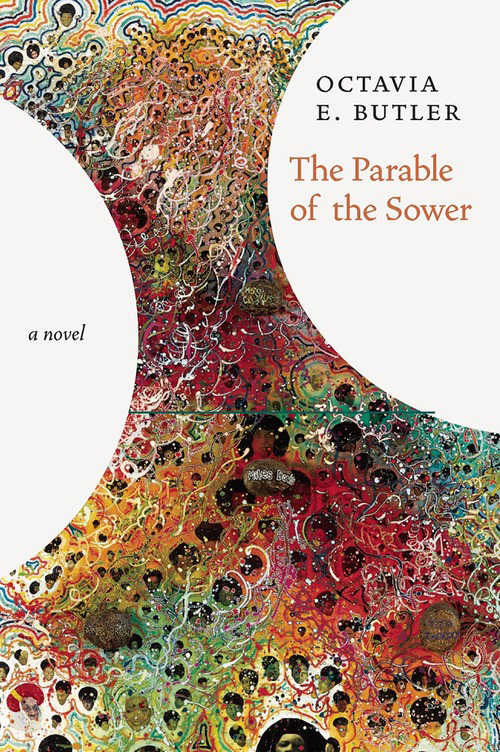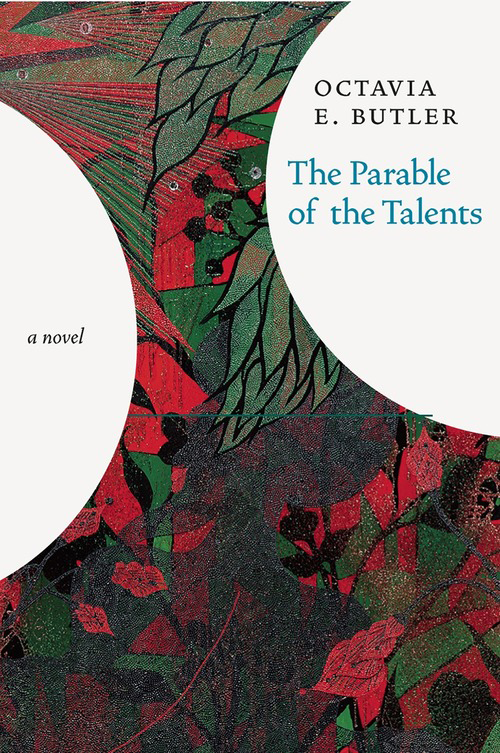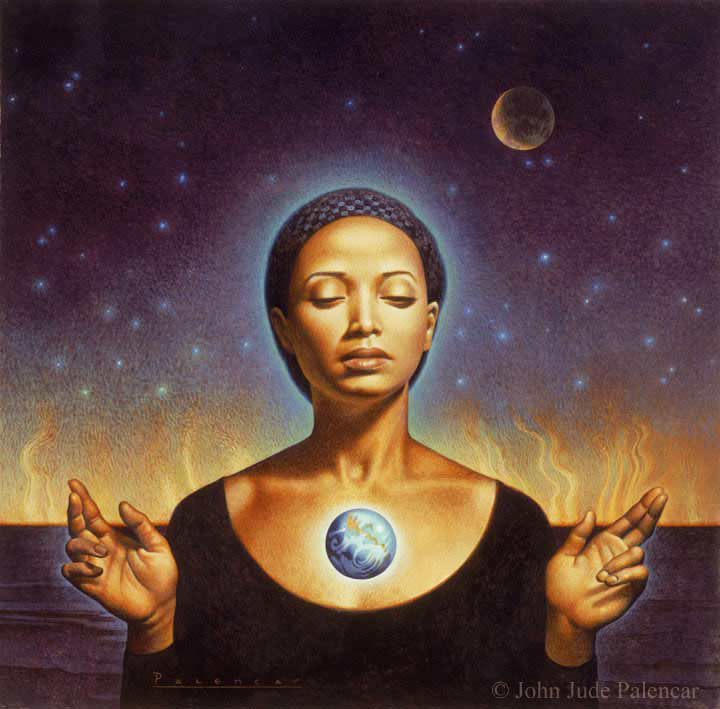Octavia Butler’s Earthseed series is two beautifully written, brutal but sometimes hopeful and emotionally devastating epistolary novels, Parable of the Sower and Parable of the Talents, that came out in the 1990’s.
Butler has been on my to-read list for a while. I started with these two novels that are some of the last that she wrote because I heard that in the second novel, America elects a fascist President whose campaign slogan is “make America great again.” Very relevant to our recent election.
Cover for a new hardcover edition of Parable of the Sower coming out in February from Seven Stories Press. I couldn’t find the cover artist on their website.
Parable of the Sower is terrifying because it’s very plausible. Butler portrays a future America that has been devastated by an economic collapse caused by climate change. No one but the ultra rich can afford gas for vehicles. Food is expensive so middle class communities grow their own in gardens and learn how to eat foods like acorns. Many people are homeless migrants walking long roads to escape extreme drought further south. Everyone is so desperate to survive and there is so much crime that no one can afford to be kind. I don’t read a lot of post-apocalyptic SF so I found the breakdown of the social order to be frightening, but if you read a lot of those books this may not affect you as much.
The book is a sequence of diary entries and religious verses by the main character, Lauren Oya Olamina. This format adds to the realism. At first Olamina is introducing you to her walled neighborhood, a somewhat familiar place of relative stability in the chaos. But then she is forced to make a harrowing journey, walking north on California’s highways, surrounded by violent vagrants and fleeing before walls of fire set by drug addicts who experience orgasmic pleasure when they watch flames burn.
Cover for a new hardcover edition of Parable of the Talents coming out in February from Seven Stories Press. I couldn’t find the cover artist on their website.
Parable of the Talents is set five years after the end of Parable of the Sower. At first, the sequel feels less alarming, perhaps because Butler adds introductory texts by other characters to Olamina’s diary entries. Until the halfway point – then a major change in Olamina’s circumstances upset me so much I could barely read it.
There are some spoilers and mention of sexual assault and slavery in the paragraph ahead.
In this book, America elects a president who promises to “make America great again” and demonizes marginalized Americans. However, unlike Trump, this President Jarret rises to prominence from the pulpit of his church, Christian America. Butler depicts an America of 2032 that has been fractured, a future Earth where Western civilization is in tatters, where the only law is the gun and the armored vehicle. Corporations enslave their workers by providing them with housing, food, and security and then charging them for these services so they’re always in debt. Vagrants and heretics are rounded up and sent to Christian American re-education camps where they are forced to work intolerable hours for little food and punished for every minor sin. Women and men are separated and kept from speaking to each other. The camp guards repeatedly rape the women and inflict pain sadistically. Fortunately we are not on Butler’s timeline in our America of 2016. Although Trump’s rhetoric does scare me, he doesn’t seem on the same level of evil as President Jarret in Parable of the Talents. However there are many important lessons in this book. One aspect that Olamina, who is African-American, highlights in her diary is that the torture and depravity she experiences in one of these re-education camps is a fraction of what her ancestors experienced in America as slaves. And that lasted generations. We should not let ourselves gloss over those horrors in our history lest we repeat them in our future.
The book titles reference parables from the Bible. It’s obvious that Butler knows that book well. But the series name of Earthseed comes from the religion that Olamina starts and struggles to spread across the fractured west coast. I wonder if Earthseed is something that Butler believes or is something she creates for the character Olamina to believe. Earthseed feels true to me.
Here’s some wisdom from it:
“The only lasting truth
Is Change.”
And,
“No one can stop Change, but we all shape Change whether we mean to or not.”
It’s the philosophy of Heraclitus translated into terms of God. It seems strange to take the idea of change as the only constant and then give that endlessly increasing entropy the name of God.
Then there’s the teleology of Earthseed: “The Destiny of Earthseed is to take root among the stars.”
Painting by John Jude Palencar for the cover of Parable of the Sower.
I definitely believe that humanity should prioritize establishing colonies in outer space and other worlds. It’s a complicated moral duty. For now we know of no other life so we should try and preserve Earth life. The only way to truly secure life’s future is to spread to as many worlds and solar systems as possible. A daunting project. Maybe impossible. And then, something that didn’t occur to me until I read Kim Stanley Robinson’s Mars trilogy is that lifeless worlds may have a right to be left undisturbed. Even if there is no life on Mars, what right do we have to mine and transform this pristine landscape? It’s an interesting conundrum. Not that I think we would leave Mars alone if there was any advantage to be found from exploiting its resources. We can’t even leave resources alone on Earth when the extraction process poisons and destroys living environments and human communities.
Everyone should read these books to see what we could become if we’re not vigilant, if we don’t remember the importance of kindness towards all people and act with thought towards the future.



